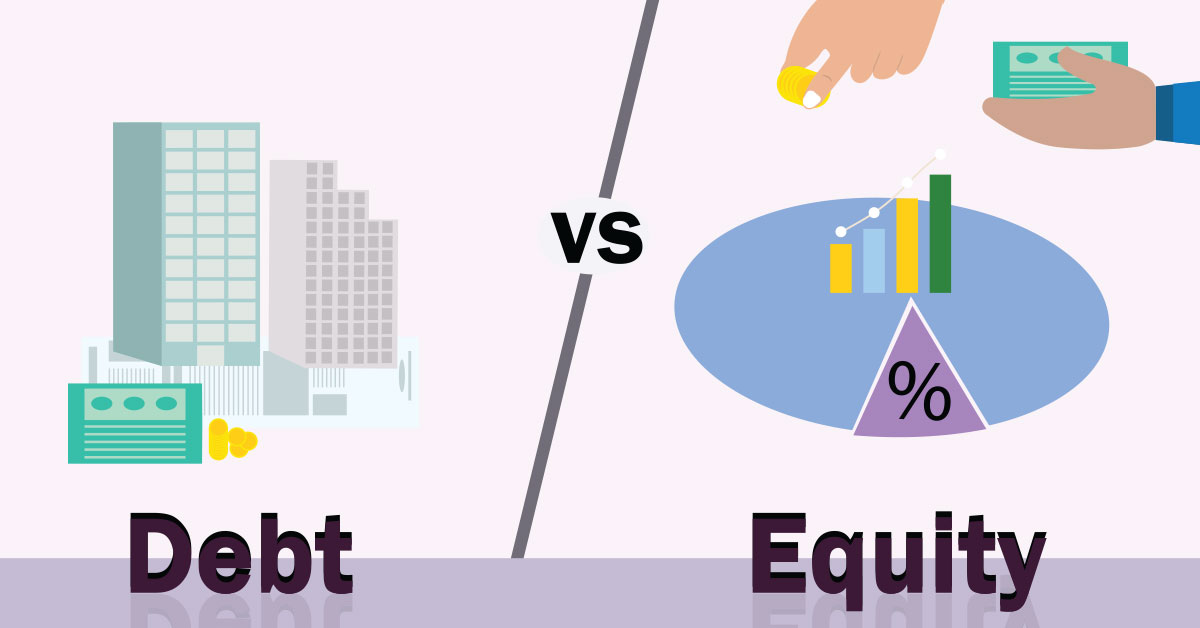
Posted on February 3, 2024 by MergerDomo
Taming the Global Beasts: Risk Management for M&A and Fundraising Success
In the ever-expanding global marketplace, small and large enterprises alike are drawn to the possibilities offered by international mergers and acquisitions (M&A) and global fundraising initiatives. These strategies can be transformative, providing avenues for growth, market expansion, and securing vital financial support. However, along with these opportunities come inherent risks that, if not carefully navigated, can jeopardize the success and sustainability of these global endeavors.
The Global Playground: Opportunities and Risks
Opportunities in Global M&A
The allure of global M&A lies in the manifold opportunities it presents for businesses. Through mergers and acquisitions on an international scale, companies can access new markets, acquire cutting-edge technologies, and fortify their competitive position. This strategic approach allows businesses to diversify their product offerings, tap into a broader customer base, and achieve economies of scale that might be elusive within a single market.
Consider a tech company based in Silicon Valley eyeing expansion into the European market. Through a well-planned M&A strategy, it can not only gain access to the European customer base but also integrate innovative technologies and approaches that are prevalent in the region. This not only diversifies the company's revenue streams but positions it as a global player with a multifaceted competitive edge.
Fundraising on a Global Scale
Fundraising, a cornerstone of business growth, has evolved into a global pursuit. Traditionally confined to local or regional investors, businesses now have access to a diverse pool of investors worldwide, ranging from institutional investors to individual contributors through crowdfunding platforms. The infusion of capital gained through global fundraising can propel a business into new markets, fuel research and development efforts, and enhance operational capabilities.
Yet, with these opportunities come a myriad of risks that must be skillfully managed. Whether engaging in M&A or fundraising, businesses need a robust strategy to navigate the complexities of the global landscape.
Mitigating Risks in Global M&A
Thorough Due Diligence
Before embarking on a global M&A venture, thorough due diligence is not just a best practice; it's a non-negotiable prerequisite. This involves a comprehensive examination of the financial health, legal standing, and cultural compatibility of the target company. Identifying potential pitfalls early in the process allows businesses to make informed decisions and negotiate effectively.
Consider a manufacturing company in Asia contemplating the acquisition of a family-owned business in South America. Thorough due diligence would involve a deep dive into the financial records of the target company, understanding its legal obligations, and assessing the cultural nuances that might impact the integration process. Uncovering potential risks early in the due diligence phase empowers the acquiring company to either negotiate more favorable terms or, in extreme cases, reconsider the entire deal.
Cultural Alignment
Cultural differences can be both a strength and a potential point of failure in a global M&A scenario. While diversity can lead to innovation and a broader perspective, it can also create friction if not managed carefully. To mitigate this risk, businesses should prioritize cultural alignment strategies.
Investing in cultural sensitivity training for teams involved in the integration process is one such strategy. This not only facilitates a smooth transition for employees from different regions but also fosters an inclusive corporate culture. A company's ability to navigate and leverage diverse cultural perspectives can be a key differentiator in the success of a global M&A venture.
Legal and Regulatory Expertise
Navigating the legal and regulatory landscapes of multiple countries is a complex task. Engaging legal experts with experience in international transactions is essential. These professionals can help businesses understand and comply with the diverse regulatory frameworks, minimizing legal risks and ensuring a smooth transition.
Consider a software company based in Europe acquiring a startup in the United States. The legal implications, including intellectual property rights, data privacy regulations, and contractual obligations, can vary significantly between these regions. Legal experts with expertise in both jurisdictions play a pivotal role in ensuring compliance and mitigating legal risks that could otherwise lead to costly litigation.
Financial Planning and Contingency Measures
Financial risks abound in global M&A, from currency fluctuations to unforeseen liabilities. Robust financial planning and the implementation of contingency measures are crucial. Businesses should have a clear understanding of the financial implications of the deal, create realistic projections, and establish contingency funds to address unexpected challenges.
Consider a pharmaceutical company expanding its global footprint through the acquisition of a research and development firm. Unforeseen regulatory hurdles or delays in product development could impact the financial projections. Having a well-thought-out contingency plan, which may include additional funding reserves or flexible financial structures, provides the necessary resilience to weather unforeseen financial storms.
Effective Communication Strategies
Communication breakdowns can derail even the most meticulously planned M&A deals. Establishing transparent and open communication channels is vital. Regular updates to stakeholders, clear expectations, and addressing concerns promptly contribute to building trust and maintaining a positive working relationship.
Effective communication goes beyond just disseminating information. It involves creating a culture of transparency and inclusivity, especially during the integration phase. Consider a telecommunications company merging with a tech startup in Asia. Clear communication about changes in processes, expectations, and the overarching vision can alleviate concerns and foster a sense of unity among employees from different cultural backgrounds.
Mitigating Risks in Global Fundraising
Diversification of Funding Sources
Relying on a single source of funding poses a significant risk. Businesses should diversify their funding sources to spread risk and increase financial resilience. Exploring various options, such as venture capital, private equity, and public offerings, ensures a more stable financial foundation.
Consider a renewable energy startup seeking funds for its global expansion. Instead of relying solely on traditional bank loans, the company may opt for a mix of private equity investors and government grants. Diversification not only mitigates the risk of dependence on a single source but also allows businesses to tap into different networks and expertise.
Thorough Investor Due Diligence
Just as businesses scrutinize potential acquisition targets, investors should undergo due diligence. Assessing the track record, reputation, and financial stability of investors is crucial. A thorough understanding of the investor's goals and expectations can prevent conflicts and ensure a mutually beneficial partnership.
Consider a technology firm attracting investment from a venture capital fund. While the financial capital is crucial, aligning with an investor who shares the company's vision and values is equally important. Conducting thorough due diligence on potential investors helps businesses avoid partnerships that might lead to divergent paths or conflicts in the future.
Regulatory Compliance
Global fundraising involves adhering to diverse regulatory frameworks. To prevent legal issues, businesses need to be aware of the legal requirements in various jurisdictions and make sure they are complying with them. Engaging legal experts with expertise in international fundraising is essential for navigating these complexities.
Consider a biotech startup conducting a crowdfunding campaign that attracts contributions from individuals across various countries. Each jurisdiction may have different regulations governing crowdfunding campaigns. Ensuring compliance with these regulations not only avoids legal troubles but also establishes trust with investors and stakeholders.
Transparent Communication with Stakeholders
Maintaining transparent communication with stakeholders is paramount in global fundraising. Investors, employees, and the wider public should be kept informed about the business's financial health, future plans, and potential risks. Proactive communication helps build trust and establishes a positive reputation in the global financial landscape.
Effective communication in global fundraising extends to public relations efforts, ensuring that the company's narrative aligns with its actions. Consider a fintech company conducting an initial public offering (IPO) on a global stock exchange. Transparent communication about the company's financial performance, growth prospects, and risk factors is essential for attracting and retaining investor confidence
Cybersecurity and Data Protection
In the digital age, cybersecurity is a critical aspect of risk mitigation in global fundraising. To preserve investors' trust and safeguard sensitive financial information, businesses need to make significant investments in cybersecurity solutions. Data breaches can have severe consequences, both financially and in terms of reputation.
Consider an e-commerce platform raising funds through an online crowdfunding campaign. The platform collects personal and financial data from contributors worldwide. A cybersecurity breach could not only compromise sensitive information but also erode trust among investors and customers. Robust cybersecurity measures, including encryption protocols and regular audits, are essential for safeguarding against such risks.
Conclusion: Mastering the Global Chessboard
In the pursuit of global success through M&A and fundraising, businesses must view the international landscape as a chessboard, strategically navigating risks and seizing opportunities. Thorough due diligence, cultural alignment, legal expertise, and effective communication are the pieces that can lead to victory. Learning from both successes and failures, businesses can refine their strategies, master the complexities of the global chessboard, and emerge triumphant in the world of international business.
As the global marketplace continues to evolve, proactive risk mitigation will be the cornerstone of sustainable growth and success. Whether embarking on a journey of global M&A or navigating the fundraising landscape, businesses that prioritize risk management will not only survive but thrive on the international stage. By mastering the intricacies of the global chessboard, businesses can transform challenges into opportunities and chart a course towards lasting success in the dynamic world of global commerce.




